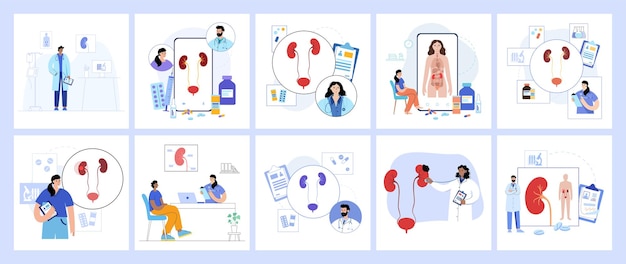Kidneys play a vital role in our bodies. They filter toxins from our blood and produce urine. When they become swollen, it means that the filtration system has failed. This condition is called acute renal failure (ARF). ARF occurs when the kidneys stop working properly due to various reasons such as infections, dehydration, medications, etc.
Kidney inflammation is usually caused by fluid retention in the body. Fluid retention causes the kidneys to swell. The swelling is usually temporary and resolves itself within a week. If the swelling persists, then it becomes chronic. Chronic swelling can cause permanent damage to the kidneys. It's advisable to consult with a nephrologist for kidney swelling treatment.
Kidney swelling is the abnormal enlargement of the kidney
It is a common condition that occurs with the growth of the organ. Kidney swelling can be caused by several factors such as hypertension, pregnancy, high protein intake, and certain medications.
Kidney swelling is a medical condition that causes your kidneys to become larger than normal. This condition can cause serious health problems if not treated properly.
The main symptom of this condition is an enlarged kidney due to which you may feel pain in your back or side when you lie down. You may also feel pain after urinating or passing urine.
The symptoms of kidney swelling are similar to those of kidney stones and should be checked by your doctor immediately if they occur frequently or suddenly develop after a long period without symptoms.
Kidney swelling is a common problem and occurs in both sexes, although it is more common in men. It causes pain and discomfort but doesn't have any long-term consequences if treated properly with medication.
Major symptoms of swelling in kidney
1. Swelling in Kidney
Kidneys play a major role in maintaining homeostasis of the body. They filter blood and produce urine. When kidneys fail to function properly, they may cause swelling in the legs, ankles, feet, hands, face, and abdomen. Symptoms of swelling in the kidneys include pain, weakness, fatigue, nausea, vomiting, and fever. If left untreated, swelling in the kidneys can lead to renal failure.
2. Pain in the Kidney
Pain in the kidneys is caused due to inflammation of the lining of the kidneys. It may occur suddenly or gradually over time. The pain may radiate to the back, groin, or lower abdomen. Other symptoms include difficulty urinating, cloudy urine, and blood in the urine.
3. Weakness in Kidney
Weakness in the kidneys is caused by an inadequate supply of oxygen to the cells. As a result, the muscles become weak and tired easily. In addition, the bones become brittle and break easily. The person may experience shortness of breath, dizziness, and fainting spells.
4. Nausea in Kidney
Nausea in the kidneys is caused when the stomach produces excess acid. This causes irritation to the lining of the stomach and intestines. The person may feel nauseous, vomit, have diarrhea, and lose appetite.
5. Fever in the Kidney
Fever in the kidneys is caused if the temperature rises above normal. The person may feel hot, sweaty, and uncomfortable. He/she may also experience chills, headaches, and muscle aches.
The treatment methods for kidney swelling can be divided into two categories:
Medication, and Surgery
Medical treatment for kidney swelling depends on the cause of the swelling
1. Kidney stones Treatment
Kidney stones are small hard lumps that develop inside the kidneys. They may cause pain and discomfort and can sometimes lead to serious complications. Left untreated, they can damage the kidneys permanently. Check out the best hospital for kidney stones treatment to find a solution
2. Dialysis
Dialysis is a treatment method where patients' blood is cleansed outside their bodies using special filters called dialyzers. Patients who undergo dialysis receive fluids and electrolytes intravenously. The procedure requires frequent visits to a clinic and takes place several times each week.
3. Kidney Transplantation
Transplantation is a surgical procedure where a healthy kidney is removed from a donor and placed in the recipient. A transplant can only take place if both the donor and the recipient are compatible.
Kidney swelling may reduce your lifespan if you don't get it treated in time.
Kidney swelling or kidney failure may reduce your lifespan if you don't get it treated in time. The kidneys are responsible for getting rid of the waste products in your body, so when they stop functioning properly, toxins will build up and could lead to cloudy thinking, nausea, and other symptoms.
Kidney failure is most common among people aged over 65 years because their kidneys might have already been compromised by diabetes, high blood pressure, or other diseases.
If you feel any of these symptoms and experience unexplained weight gain at the same time, it might be a sign that you need to see a doctor for kidney swelling treatment as soon as possible.






1 Comments
Swelling in the kidney can be a very serious medical condition and it is important to seek medical help for chronic renal disease as soon as possible if any of these symptoms are experienced. It is also important to make sure that any underlying causes are identified and treated, as this will help to prevent further problems from occurring.
ReplyDelete